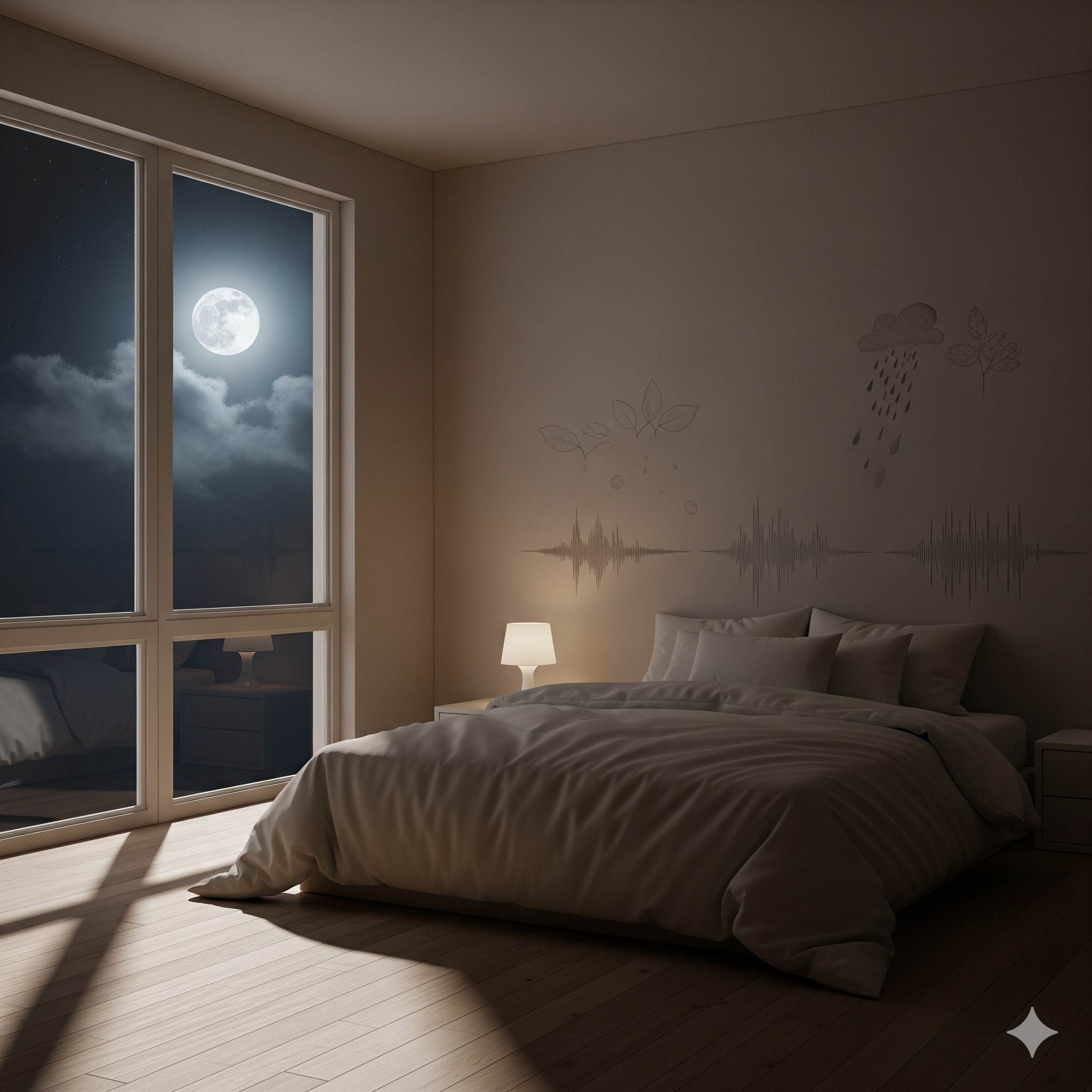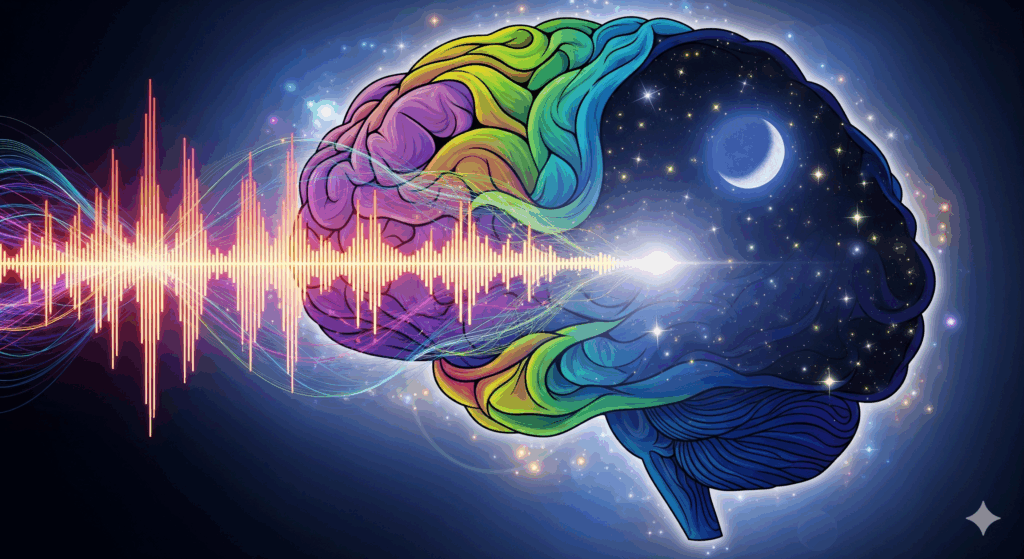Physical Address
304 North Cardinal St.
Dorchester Center, MA 02124
Physical Address
304 North Cardinal St.
Dorchester Center, MA 02124

Getting a good night’s sleep is crucial for your overall health and well-being. But for many, achieving that deep, restful sleep can be elusive. This is where deep sleep sounds come into play. By incorporating soothing sounds into your bedtime routine, you can significantly enhance your sleep quality and wake up feeling refreshed.
In this comprehensive guide, we’ll explore the science behind how deep sleep sounds work, their incredible benefits, the best types of sounds to try, and how you can easily integrate them into your nightly routine.

Before diving into how sounds can help, it’s essential to understand deep sleep itself. Also known as slow-wave sleep, deep sleep is the third stage of non-REM sleep. It’s a critical period for physical and mental restoration.
The right kinds of sounds can help mask disruptive noises, promote relaxation, and guide your brain into a state that is conducive to deep sleep. Here’s how it works:
Sleep sounds serve a practical purpose by masking unwanted noises. This is especially helpful if you live in a noisy environment or are sensitive to disturbances like traffic, a snoring partner, or neighbors. By creating a consistent auditory background, sleep sounds prevent sudden noises from interrupting your sleep cycle.
Soothing sounds, such as gentle rain or soft music, can calm the mind and reduce stress levels. This lowers your heart rate and blood pressure, signaling to your body that it’s time to wind down and prepare for sleep.
Rhythmic sounds, like the consistent crashing of ocean waves or the steady hum of a fan, can encourage your brainwaves to synchronize with the rhythm. This process, known as brainwave entrainment, helps the brain achieve a state of relaxation more quickly, making it easier to fall and stay in a deep sleep.
There are various types of sounds that can facilitate deep sleep, each offering unique benefits. Here are some of the most popular and effective options.
Sounds from the natural world are inherently relaxing for the human brain. They help create a mental escape from the stresses of daily life.
White noise is a consistent sound that contains all frequencies audible to the human ear. This quality makes it incredibly effective at masking other sounds.
Binaural beats work by playing two slightly different frequencies in each ear through headphones. Your brain perceives a third tone, which is the difference between the two frequencies. This perceived tone can gently influence your brainwave activity, guiding it toward frequencies associated with relaxation and deep sleep (like delta waves).
Note: You must use stereo headphones for binaural beats to be effective.
Music specifically composed for sleep often features slow tempos (60−80 beats per minute), minimal instrumentation, and soothing, repetitive melodies. Ambient music, minimalist classical pieces, and specially designed meditation tracks can calm your nervous system and help you drift off peacefully.
Incorporating these sounds into your life is simple and effective. Follow these steps to get started:
Q: What are the best sounds for deep sleep?
A: This is subjective, but the most popular and effective sounds are often nature sounds (like rain and ocean waves), white/pink/brown noise, and slow-tempo ambient music. Experiment to see what works for you.
Q: Can sleep sounds be harmful?
A: When used at a safe volume, sleep sounds are not harmful. It’s important to keep the volume at a moderate level (below 60 decibels) to protect your hearing, especially if you use headphones or earbuds all night.
Q: Should I leave sleep sounds on all night?
A: Many people benefit from leaving sounds on all night to prevent awakenings from external noises. However, if you only need help falling asleep, you can use a timer to have the sounds turn off after 30-60 minutes.
Deep sleep sounds are a powerful, simple, and effective tool for improving your rest. By masking disruptive noises, promoting relaxation, and helping you spend more time in restorative sleep stages, these sounds can transform your nights and energize your days.
Take the time to find the sounds that work for you, optimize your sleep environment, and create a consistent routine. You can harness the power of sound to unlock better sleep and enhance your overall well-being.